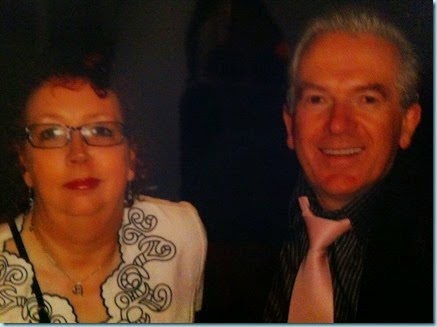The apostle Peter’s first letter is addressed, ‘To God’s elect, strangers in the world.’ Does it feel like that to you? If you are a Christian do you find yourself out of step with the world? The world, of course, is familiar to us. We know how it operates, we engage with it, and we negotiate our way through it in our every-day lives but, ultimately, Peter seems to be saying it is alien to us. In his second letter to Christians in Corinth the apostle Paul insisted, ‘we regard no-one from a worldly point of view,’ and goes on to describe Christians as, ‘Christ’s ambassadors.’ (2 Corinthians 5:16&20)
As ambassadors, we may be adept in the arts of tact and conciliation, speaking the truth with ‘gentleness and respect’ (1 Peter 3:15) yet we never lose sight of where our duties lie, of who has first call on our loyalties. As Paul makes clear, we don’t look at things by the standards and values of the world, but by those of the one we now represent. We are to represent his interests in the world, ‘God making his appeal through us.’ (2 Corinthians 5:20)
Sometimes it can feel as though we are overwhelmed by the world, and we find it easier to ‘go with the flow.’ Perhaps that is why Peter writes as he does to ‘God’s elect…throughout Pontus, Galatia, Cappadocia, Asia and Bithynia,’ in other words scattered among the nations and in danger of being overwhelmed. That is one of the pitfalls of representing one country, or one business from one country, to another; going native. Sometimes called ‘clientism,’ or ‘localitis,’ it is when a representative comes to regard the people and officials of the host country as ‘clients,’ when he or she defends the interests of these ‘clients’ as though they are the employers
Of course, in many respects, this can make life, at least in the short term, easier. The people with whom you have to do every day seem somehow easier to get along with once you see things from their point of view, while the people you represent seem distant and out of touch with the way things are, ‘on the ground.’ Ultimately, however, as Peter reminds us, we are, ‘a chosen people, a royal priesthood, a holy nation, a people belonging to God, that [we] may declare the praises of him who called [us] out of darkness into his wonderful light.’ (1 Peter 2:9)
We do things God’s way, see things God’s way, and we describe things as God’s ambassadors, however diplomatic we feel we need to be. Peter reminds us that we are ‘chosen according to the foreknowledge of God the Father, through the sanctifying work of the Spirit, for obedience to Jesus Christ and the sprinkling of his blood.’ (1 Peter 1:2) It is no accident that we find ourselves ‘strangers in the word,’ for God the Father has chosen to make us citizens of a heavenly kingdom. He has done this by a work of the Spirit that sanctifies us, prepared us for that citizenship and calling, and he has given us the work of obedience to Jesus Christ. Our ways now are as alien to the world as are the world’s ways to us.
This means that only other Christian believers properly know and understand what it is to be chosen, an ambassador for Christ, sanctified, and striving to obey that call. Only other Christians fully appreciate what it means when we obey Jesus and reject the world’s self-centred-ness. Such a course is alien to the world and ever has been. Just like those early Christians, first in Jerusalem, then scattered across Asia Minor and ultimately the world, we finally have each other in this world because the rest simply don’t ‘get it.’ Paul writes in his first Corinthian letter:
‘This is what we speak, not in words taught us by human wisdom but in words taught by the Spirit, expressing spiritual truths in spiritual words. The man without the Spirit does not accept the things that come from the Spirit of God, for they are foolishness to him, and he cannot understand them, because they are spiritually discerned. The spiritual man makes judgements about all things, but he himself is not subject to any man’s judgement: For who can know the mind of the Lord that he may instruct him? But we have the mind of Christ.’ (1 Corinthians 2:13-16)
Think of it! We even have a different ‘language’ we speak, ‘expressing spiritual truths in spiritual words,’ a language the world considers unintelligible, foolishness. We have the mind of Christ with which to discern and make sound judgements concerning the affairs of his kingdom, and a language in which we express that kingdom business. But remember that, ‘it pleased God through the folly of what we preach to save those who believe’ (1 Corinthians 1:21) Our speaking, acting, and doing are not futile, for those who believe may come to know that language, to have that mind, to be ambassadors of the one who chose them, just as once we did. The question is, are we speaking the language of the God who chose us, uttering spiritual truths as we go about kingdom business? Or have we fallen victim to clientism, speaking the language of the world that is so familiar to us?
The world doesn’t speak our language, doesn’t know or accept Christ, and is proving increasingly hostile to his kingdom and rule. It is surely up to us, we who have the mind of Christ, who speak the language of spiritual things, to stand together in advancing the work of the kingdom entrusted to our care in this generation, and for the benefit of the next.
